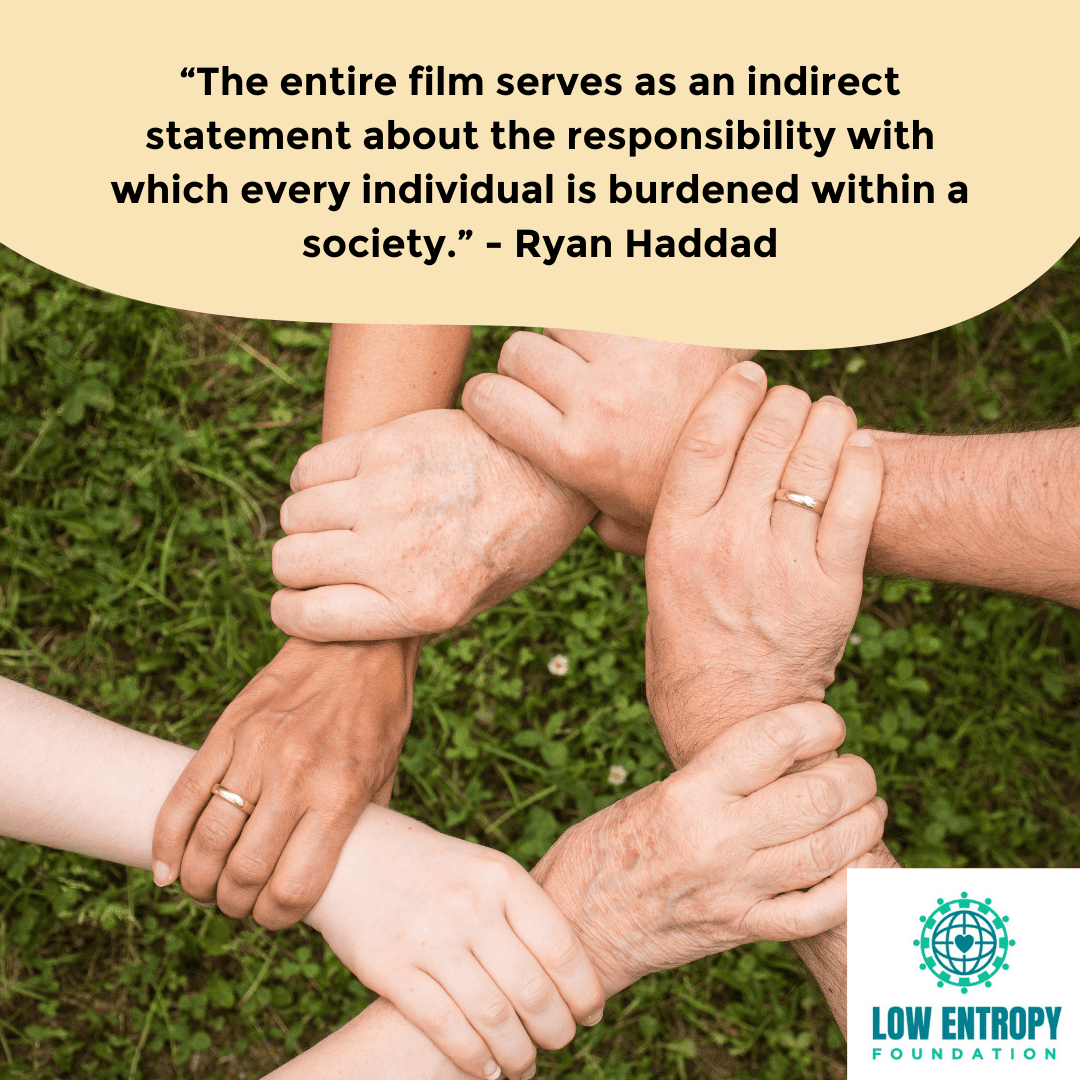Ryan Haddad (he/him/his), Low Entropy Volunteer Writer
One unavoidable facet of my personality concerns how little I enjoy discussing movies, even after I’ve thoroughly enjoyed watching them. When I happen to find myself in a position where I have to provide an opinion, I usually resort to shoulder-shrugs or general, too-vague-to-pin-down impressions. However, the same attitude can’t be applied when discussing Robert Bresson’s last film, L’Argent (“Money” in English), released in 1983.
Bresson was a widely influential French filmmaker who was adamant about creating the films he wanted to see. His vision was uniquely singular and his style was stripped to its essentials, revealing a neat, smooth skeleton rather than a fully fleshed-out organism with all its habitual faults and imperfections. No scene is wasted; no line is unimportant. The ultimate impression was the ultimate goal. As an audience member, you only saw what you needed to see. It’s because of this that his films resemble documentaries more than actual movies. The camera is unusually static, scenes linger, music is rarely used and actors feel rigid and unemotional, like mannequins. Bresson disliked and even actively avoided hiring professional actors for his films, relying mostly on unknowns to emphasize unknown stories.
But why mention the film now? Is there anything left to discuss? The story, for the most part, doesn’t follow a character, but rather an object. The film starts when a fraudulent 500-franc note is exchanged between two schoolmates as one of them attempts to buy a picture frame. We then follow the fake note as it switches hands and systematically affects the lives of all who touch it, ultimately landing in the hands of a truck driver who gets taken to court because of it. Now imprisoned and shunned by his family and peers, his life tumbles down a staircase of escalating violence and destruction.
Besides the worthwhile commentary on capitalist greed and the modern human condition, one aspect of the story that personally interests me the most is the hidden (and ignored) impacts we have on the people around us that we probably never stop to think about. The type of responsibility this incurs is one we’ve rarely had to seriously consider in this day and age, but the pandemic has forced us to reconsider the connections we have with the countless strangers surrounding us.
Consider the film’s main character. He’s a truck driver who, in a chain reaction of hand-offs, receives the fake note as payment for his services from a shopkeeper. Upon confronting the shopkeeper with no way to legitimately prove his innocence, he gets taken to court, is tried, and falls down a rabbit hole of misfortune. As a viewer, there’s nothing you can glean about his character. The dialogue in the film is delivered in a straight-faced, monotone manner, with minimal emotional range on display. This all serves to intensify the opaque portrait of the truck driver. His gaze is impenetrable, his thinking unclear, his presence an uncertainty, and yet his fate feels curiously intertwined with our own. The entire film serves as an indirect statement about the responsibility with which every individual is burdened within a society. Whether they’re conscious or accepting of it is irrelevant; what matters is that it’s there, it’s real, and it’s something that can roar to life when we least expect it. The truck driver passes on his burden to the viewer, then the viewer to their peers, and so the responsibility grows.
This concept of universal responsibility has become most apparent during the pandemic. The idea that a simple outing can set a chain reaction that affects countless others was previously unthinkable to such a degree. For me, I was able to reconsider the influence my life had on others. I used to fear getting involved with people for multiple reasons. I used to avoid it like the plague. Perhaps it was the responsibility that came with sharing space and the desire for capitalist satisfaction that put me off, even subconsciously, from meeting people’s eyes. But suddenly being forced indoors for the greater part of a year recalibrates your view on the connections you have, and the ones you are forced to consider. Our responsibility to others, the most radioactive thing about us that is simultaneously harmless, is something that binds us together. It’s an inescapable aspect of our existence that can take years to master, or else we run the line of abusing its power to benefit personal gain.
It’s human nature to internalize our struggles and seek personal satisfaction. The only difference nowadays is that life has gotten so hectic, so crowded and unpredictable that forgetting about the needs of others has become a relatively easy decision to make. However, certain events can force us to reconsider how desperately we need one another to survive. Something I often think about is the difference between humans and animals at birth. Largely speaking, animals are thrust into action at birth. It only takes a few seconds for a fawn to find its footing before its expedition begins. Humans, on the other hand, take years to rely on themselves instead of others. Our connections and responsibilities to one another form the building blocks of our species.
—
I’m a recent graduate of the Lebanese American University in Beirut. I will be pursuing graduate studies in London, Ontario this fall. I enjoy reading fiction and follow moose-related posts on Reddit.







